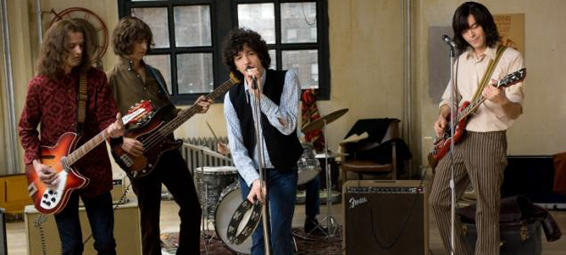David Chase’s Not Fade Away is a nostalgia trip of such a specific nature that it’s unlikely to resonate much with anyone who wasn’t in high school or college in the suburbs of the New York metropolitan area during the mid-1960s, spending countless hours listening to the music of the Beatles and the Rolling Stones.
Best known as the creator of the acclaimed television series The Sopranos, Chase tells here a semi-autobiographical story of a garage band that never made it big. A group of a friends in a middle-class New Jersey town in 1964 see the way the girls swoon for the Fab Four and Mick Jagger and decide to pool their limited talents.
Doug (John Magaro) is the shy drummer who unexpectedly finds himself thrust into lead-singing duties one night after the band’s usual front man accidentally swallows a lit marijuana joint just before a gig at a party. His performance attracts the attention of Grace (Bella Heathcote), the beautiful, rich girl for whom he’s long pined.
The movie suffers from a bit of ADD, not staying on many moments long enough to allow us to learn much about what makes Doug or Grace or their friends and family tick, beyond the broadest (often cliched) stroke: Doug’s father is a big, racist lunk, Grace’s sister is mentally disturbed. I felt I was watching a story on fast forward, as scene to scene jump quickly over months. It’s disjointed and disorienting, rather than flowing along naturally.
Is Doug a truly gifted artist whose brilliance the world will never recognize, or merely a poseur who dresses the part of the latest rock ‘n’ roll fashion trend? Is Grace the kind of girl who just naturally clings to whomever seems to be the coolest, most popular guy around, or does she truly believe in Doug’s potential for greatness? I don’t know, because the movie seemingly plays it both ways, leading to a collection of muddled characters.
It doesn’t help matters that the final scenes are a jumble that combine some attributes of less successful moments from the Sopranos— its overwrought dream sequences and the defiant inscrutability of its finale.






